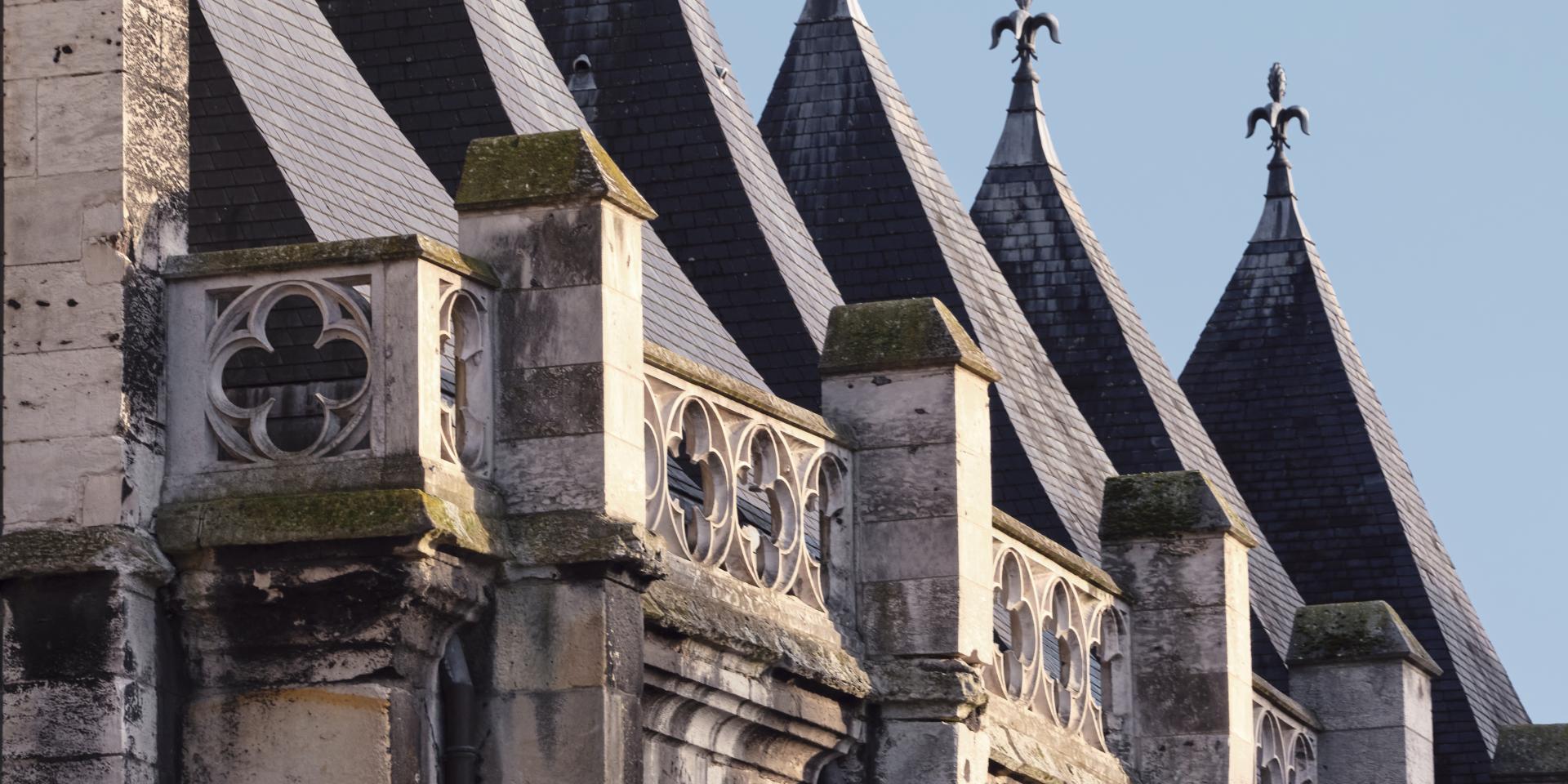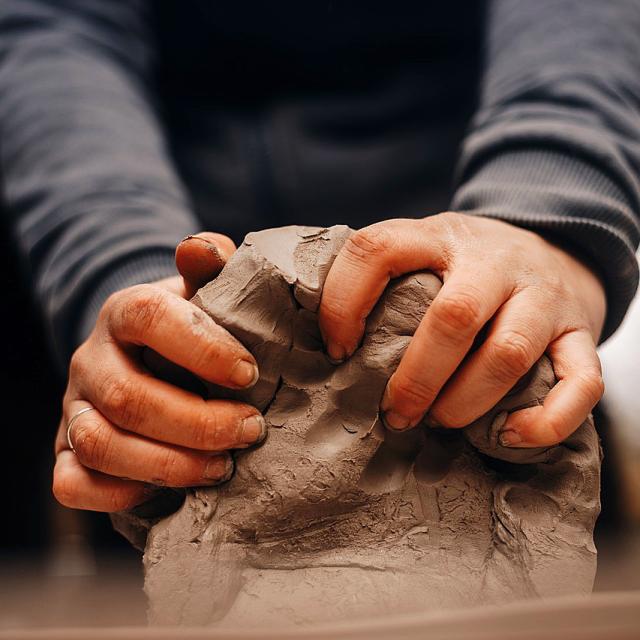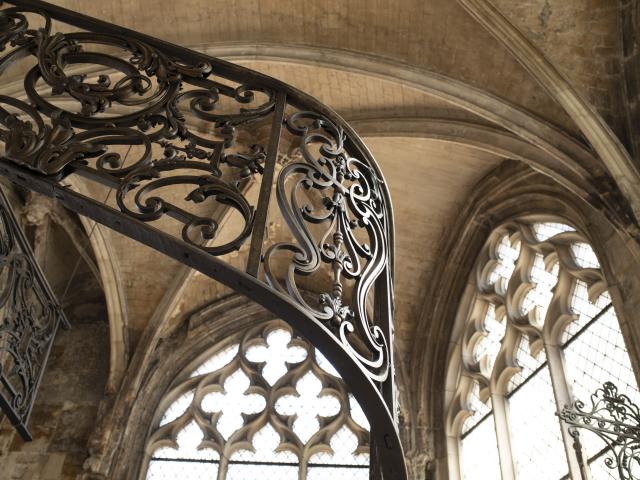The abundance of ore in Normandy also favored the iron industry. Still recognizable today, the workshop of Master Ironworker Ferdinand Marrou, now the Tearoom, located opposite the Cour des libraires of the Cathedral of Notre-Dame in Rouen, is adorned with wrought iron of great finesse.
His work can be found throughout Rouen such as the bell towers of Notre-Dame Cathedral, the crest of the Gross Clock or the crests of the Parliament of Normandy located on Rue aux Juifs in Rouen. Iron art is today represented at the Musée de la ferronnerie le Secq des Tournelles in Rouen.
 Museum le Secq des Tournelles - Rouen
Museum le Secq des Tournelles - Rouen Museum le Secq des Tournelles - Rouen
Museum le Secq des Tournelles - Rouen Museum le Secq des Tournelles - Rouen
Museum le Secq des Tournelles - Rouen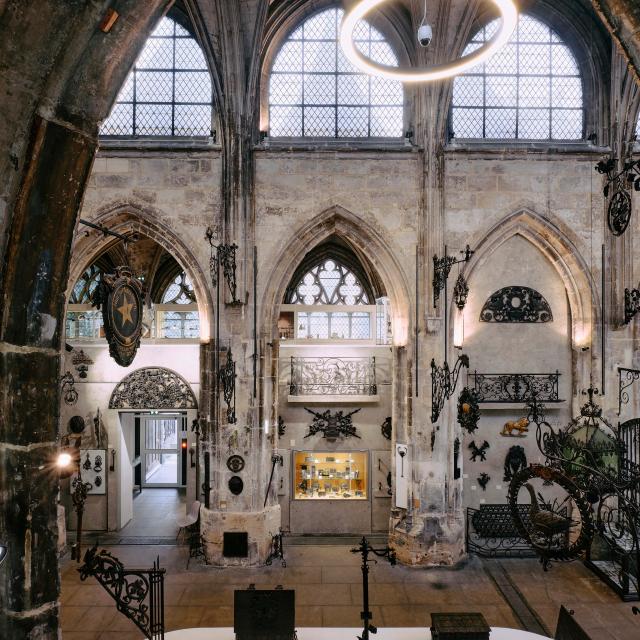 Museum le Secq des Tournelles - Rouen
Museum le Secq des Tournelles - RouenCraft stores and workshops
The presence of many rivers on the territory has allowed the development of the textile industry, one of the traditions of Rouen that endure today through the presence of the built heritage. Rouen, Darnétal and Elbeuf were recognized cloth cities. The sheep is moreover one of the symbols of the Norman capital.
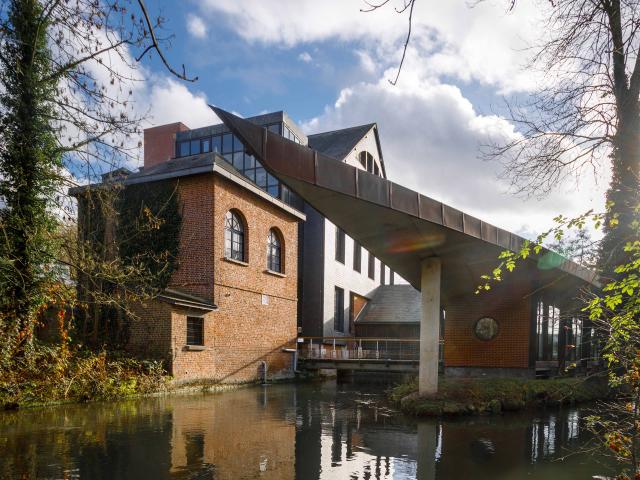 The history of La Corderie
The history of La Corderie The Vallois Rope Factory
The Vallois Rope Factory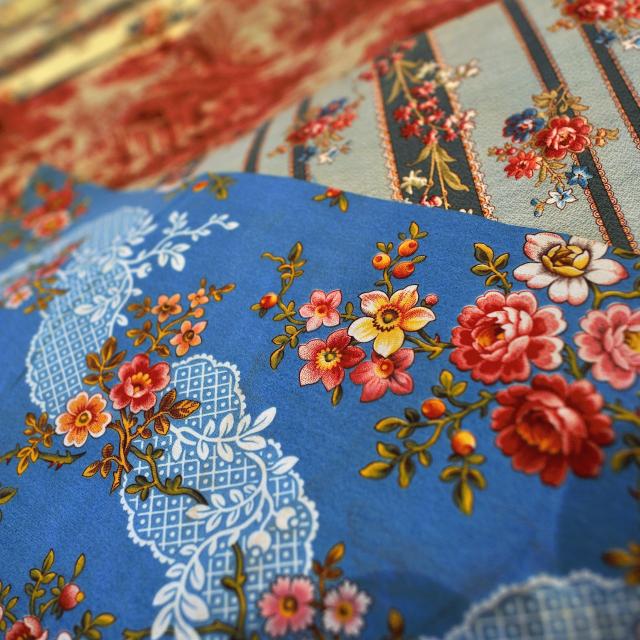 Industrial Museum of the Vallois Rope Factory - Notre-Dame-de-Bondeville
Industrial Museum of the Vallois Rope Factory - Notre-Dame-de-Bondeville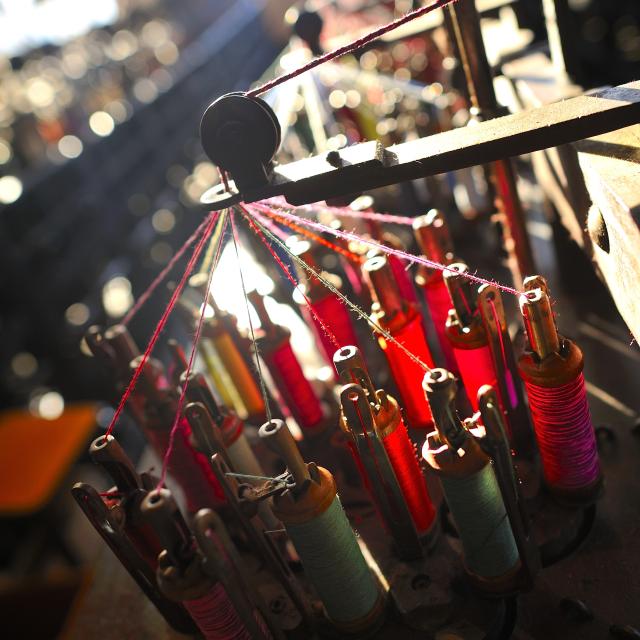 Industrial Museum of the Vallois Rope Factory - Notre-Dame-de-Bondeville
Industrial Museum of the Vallois Rope Factory - Notre-Dame-de-BondevilleAmong the various fabrics produced then we can cite the Indians of Rouen. A historically important cloth city, Rouen gives a great place to linen. Norman flax growers provide 60% of French production and 45% of processed European production. Located in the heart of the Pays de Caux, Doudeville (76560) is the national capital of linen. It is the former commercial crossroads of the linen cloth making market.
Ceramics, ironwork or textile industry, so many traditions of Rouen, places, crafts, know-how and art of living to discover when you come to the Rouen metropolis.
